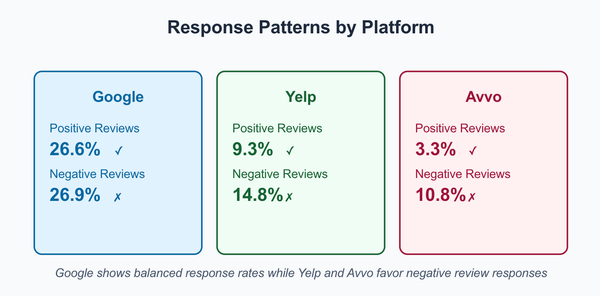Premises Liability Settlements: What the Numbers Reveal About Claim Trends
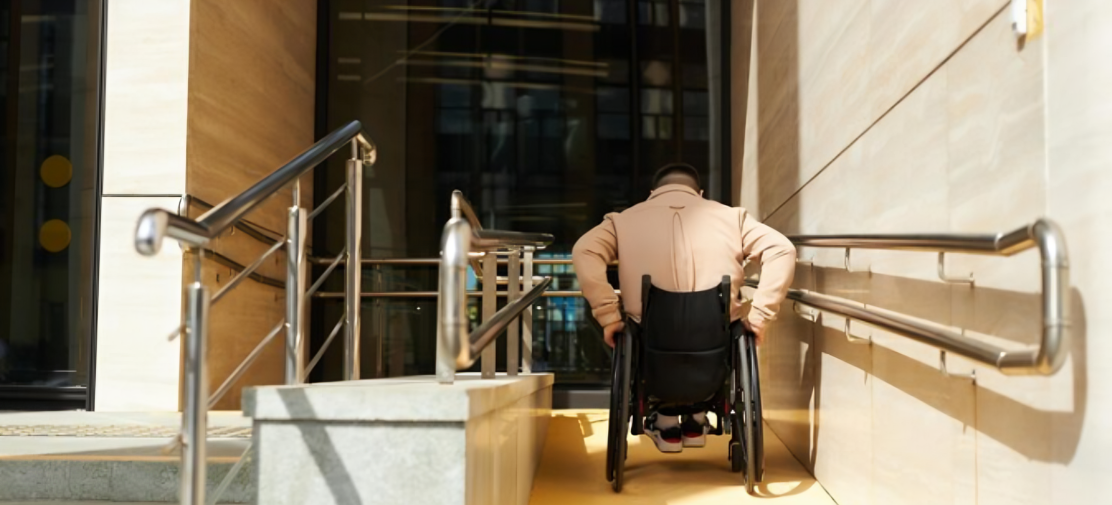
Accidents can happen anywhere — in your own apartment, at a grocery store, or even in a public park. However, if you get any injury on someone else’s property because they failed to fulfill their duty for care, you can file a premises liability case against the owner.
Premises liability settlements are usually intended to cover the financial and mental impact of the injury. But what happens when it comes to settling such claims? Is it that simple to file a premise liability lawsuit? Let’s explore the answers to all these questions and understand the compensation trends!
What is a Premises Liability Lawsuit?
Premises liability is a legal concept that holds property owners accountable for injuries that occur on their property due to unsafe conditions. These conditions could include wet floors, broken stairs, inadequate lighting, poorly maintained walkways, etc. If someone gets hurt due to one of these hazards, they might have grounds to file a claim under premises liability law.
The idea behind premises liability is simple: property owners have a duty to maintain safe environments for anyone who enters their property, whether it’s for business, leisure, or just a visit. If they fail in this duty and someone is injured, they could be liable for the injury.
Who Can You Hold Liable in Premise Liability Cases in the USA?
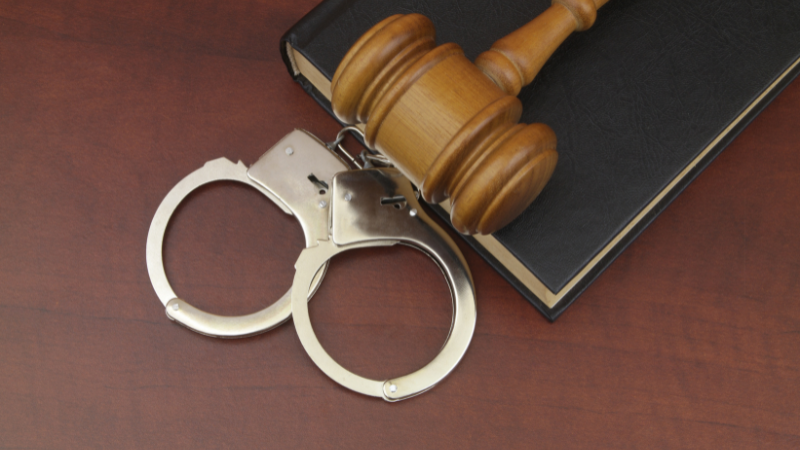
When you’re injured on someone else’s property due to unsafe conditions, one of the first questions that arise is: "Who can I hold liable?" Understanding who is responsible for your injury is crucial, as it determines who you can pursue for compensation. Let’s break down who is responsible for premises liability cases in the USA.
Property Owners
The property owner is the most obvious party to hold liable in a premises liability settlement. Property owners have a legal duty to maintain their premises and keep them safe for individuals who enter. The types of property owners who may be liable are:
- Residential Owners: Homeowners and landlords have a duty to ensure the safety of their properties for guests and tenants.
- Commercial Property Owners: Business owners are also responsible for maintaining safe environments for customers and employees.
- Government Entities: Local, state, and federal governments are responsible for the safety of public spaces, such as parks, sidewalks, and government buildings.
Property Managers or Renters
In some cases, the property manager or tenant may be responsible for maintaining a safe environment. If the property is rented or leased, the person or entity managing or occupying the property may be the one tasked with ensuring the property’s upkeep.
Maintenance Workers or Contractors
Another party that could be held liable in a premises liability case is a maintenance worker or contractor responsible for repairing or maintaining the property. However, in most cases, the property owner would still be responsible for ensuring that contractors or maintenance workers perform their duties correctly and maintain safety.
Tenants in Commercial Leases
In commercial leases, the terms of the lease agreement can affect liability. Often, the tenant is responsible for maintaining the leased property's safety, including regular repairs and keeping hazardous conditions in check. If a tenant fails to uphold these responsibilities, they could be held liable for injuries that occur on the property.
Guests and Visitors
Sometimes, the person injured on a property might also share responsibility for the dangerous condition. This is where concepts like comparative negligence and contributory negligence come into play.
How to Prove Negligence in Premise Liability Claims?
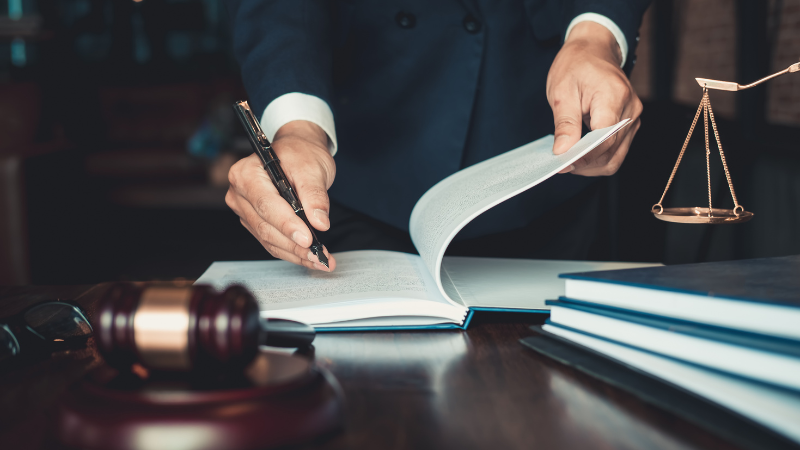
Proving negligence in a premises liability claim involves demonstrating that the property owner or responsible party failed in their duty to ensure safety. Here's a more detailed breakdown of the four key elements you need to prove:
1. Duty of Care
The first thing you must establish is that the property owner had a duty of care toward you as a visitor. In premises liability law USA, property owners are legally obligated to maintain safe conditions for those who enter their property. This duty can vary depending on the type of visitor:
- Invitees (e.g., customers in a store or tenants in a building) are owed the highest duty of care.
- Licensees (e.g., social guests) are owed a lower duty of care.
- Trespassers generally aren’t owed a duty, though there are exceptions, especially for children.
2. Breach of Duty
Once you establish that the property owner owed you a duty of care, you must show that they breached this duty. A breach occurs when the owner fails to maintain a safe environment or take appropriate action to fix or warn of hazards. If they were aware of the hazard but didn’t take appropriate action, that’s considered negligence.
3. Causation
The next element you need to prove is that the breach of duty directly caused your injury. You must show a clear link between the property owner’s negligence and the harm you suffered. For example, if you slip on a wet floor in a supermarket and break your leg, you must prove that the store owner knew about the spill and didn’t clean it up, which led directly to your fall.
4. Damages
Finally, you must show that you suffered damages due to the injury. This could include both economic and non-economic losses. Your premises liability claim won’t succeed without proving actual damages, no matter how the other elements are established.
What Damages can be Recovered in Premises Liability Settlements?
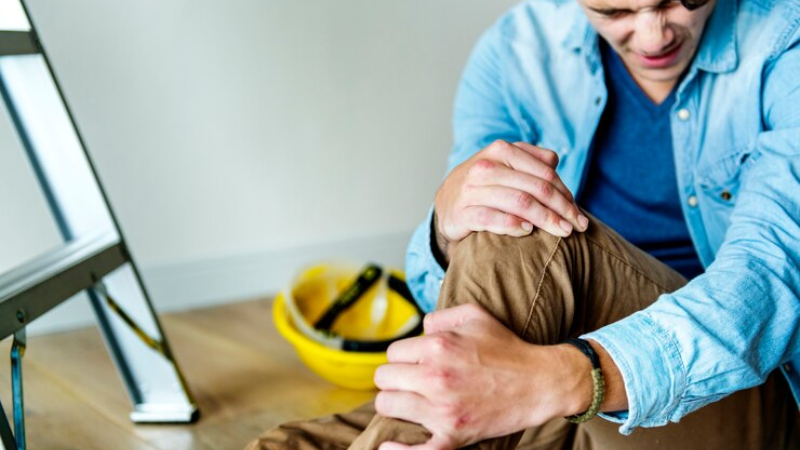
Premise liability settlements are meant to compensate for the damages the plaintiff or family members suffered. The exact amount and type of compensation depend on the severity of your injuries, the circumstances of the case, and the laws of your state. Here are the key damages that can be recovered in premises liability settlements:
- Medical Expenses: This includes both past and future medical costs associated with your injury. Medical expenses can cover hospital bills, doctor’s visits, surgeries, medication, physical therapy, and any other treatments related to the accident.
- Lost Wages: If your injury causes you to miss work, you may be entitled to compensation for lost income. This includes both the wages you've already missed and any future wages.
- Pain and Suffering: Pain and suffering damages compensate you for the physical pain, emotional distress, and loss of enjoyment of life. While these damages are subjective, they play a major role in the final payout.
- Property Damage: If any of your personal property, such as clothing, electronics, or a vehicle, was damaged in the accident, you may be entitled to compensation for those losses as well.
- Punitive Damages: Punitive damages are awarded in some cases where the property owner’s actions were particularly reckless or malicious. These damages are meant to punish the defendant for extreme behavior and deter others from similar conduct.
- Emotional Distress Emotional distress damages compensate for the psychological effects of the accident, such as anxiety, depression, or post-traumatic stress disorder (PTSD).
- Loss of Consortium In some unfortunate cases where the plaintiff dies, the injured party’s spouse or family members may be entitled to recover damages for the loss of companionship and emotional support due to the injury.
Factor Affecting the Final Premises Liability Payout
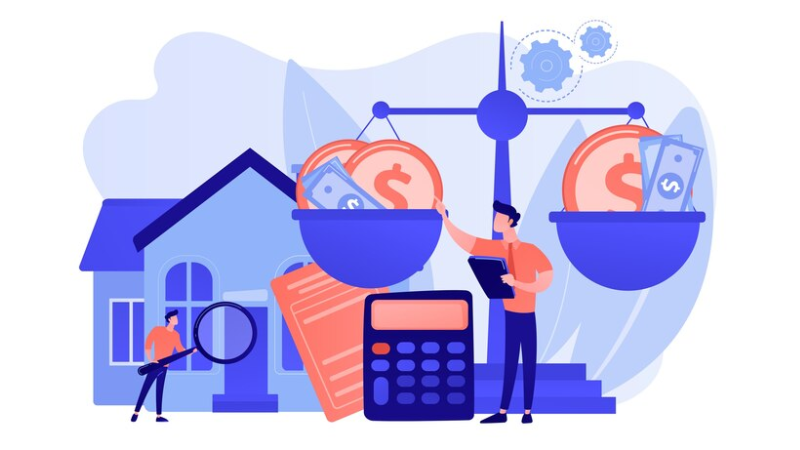
Each case is unique, and the amount of compensation you can receive depends on various circumstances. Let’s look at some major factors that may affect the final premises liability settlements:
1) Severity of Your Injury
The most crucial factor in your payout is how severe your injury is. If you’ve suffered significant harm, like broken bones, head trauma, or long-term disabilities, your settlement is likely to be higher. But you'll get a smaller payout if the injury was minor and didn’t cause much pain or lasting effects.
2) Proving Negligence
For your case to succeed, you need to show that the property owner was negligent. This means they failed to maintain the premises properly or were aware of a danger but didn’t fix it. The stronger your case is, the more likely you’ll receive a fair payout.
3) Insurance Coverage
The property owner's insurance will greatly influence how much you can recover. You might be in luck with a higher payout if they have a good policy. If the insurance is minimal or non-existent, you may rely on other options for compensation.
4) Documentation of the Incident
Good documentation can make a huge difference! Photos of the scene, witness statements, and medical records can all strengthen your case. The better your evidence, the more likely you will get a higher payout.
5) Were You Partly at Fault?
In some cases, you may have contributed to your own accident. For instance, you might be partially responsible if you were texting while walking and tripping. Depending on where you live, your payout might be reduced based on how much fault is placed on you.
6) Where is Your Case filed?
The location of your case can also affect how much you’re awarded. Some states have laws that lead to bigger payouts than others, while others may cut off your compensation amount by the percentage of your comparative fault. Depending on your location, your lawyer will know the best way to approach your claim.
7) How Long the Case Takes to Settle?
Sometimes, settling quickly means you’ll get a smaller payout because there’s less time to investigate your case. But if the case drags on, you might get more compensation, especially if it leads to a better settlement or court verdict.
8) Insurance Company Tactics
Insurance companies aren’t always on your side. They may try to lowball you with a quick settlement offer. That’s why hiring a good personal injury premises liability lawyer on your team is so important—they’ll make sure you don’t accept anything less than what you deserve.
9) Future Medical Costs
If you need long-term treatment or therapy, that will be included in your settlement. A serious injury might require years of care, so future medical costs can significantly increase your payout.
10) Emotional and Mental Impact
Sometimes, the psychological effects of an injury can be just as severe as physical ones. If your injury caused anxiety, depression, or other emotional distress, you might be entitled to additional compensation to account for the mental toll it has taken on you.
Common Premises Liability Case Types and Payouts in the USA
The payouts for premises liability claims can vary widely based on the type of injury, the severity, and whether the case is settled or goes to trial. Here are some general payout ranges based on common premises liability cases:
a) Slip and Fall Accidents

Slip and fall accidents are one of the most common types of premises liability claims. When the plaintiff suffers injuries on someone else's property due to hazardous conditions like slippery floors, loose mats, etc, they are entitled to compensation. There are over 8 million emergency injury cases in the USA because of slip and fall accidents. The payout for slip and fall cases typically ranges from $10,000 to $50,000, depending on the seriousness of the injury and the property owner's negligence.
b) Inadequate Security
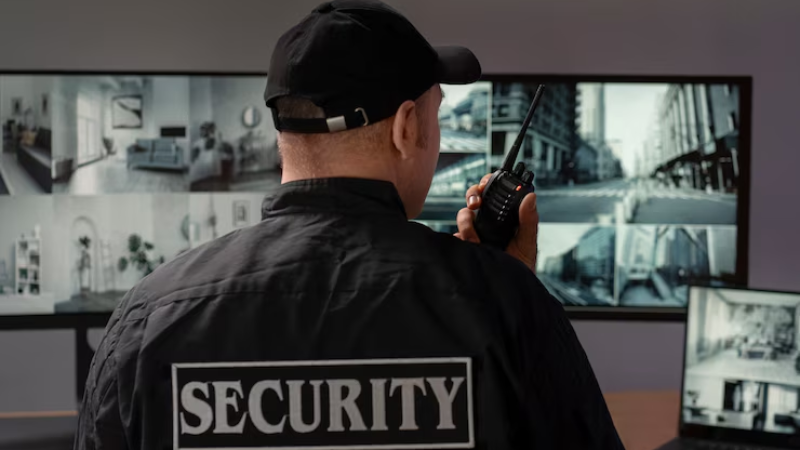
Inadequate security cases arise when property owners fail to provide sufficient safety measures, leading to incidents like assault or robbery. Payouts for inadequate security claims can range from $50,000 to $500,000+, with higher amounts typically awarded when the victim suffers severe injury or the property owner’s negligence is clear.
c) Swimming Pool Accidents

Swimming pool accidents happen when the authorities do not follow safety protocols, such as lacking lifeguards, unsafe pool areas, or improper maintenance. From 2020-2022, there were around 4,500 deaths reported by drowning in swimming pools and spas. Swimming pool accident payouts can range from $10,000 to $50,000. However, serious injuries like neck or brain damage can result in multi-million dollar settlements.
d) Dog Bite Accidents
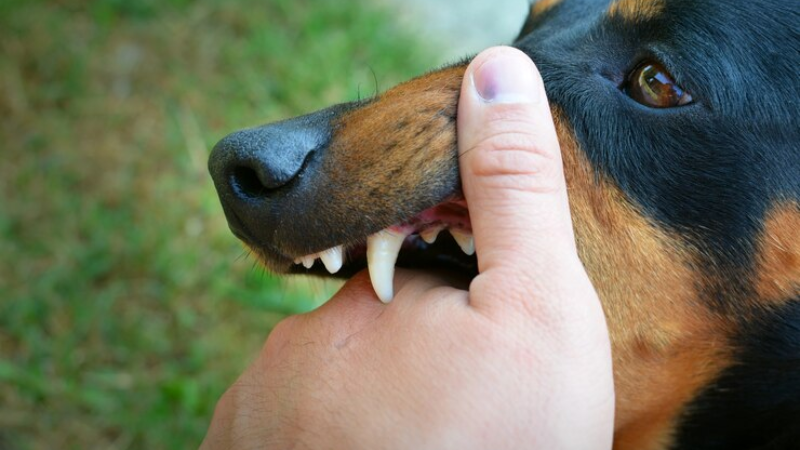
Dog bite accidents occur when a dog attacks a person on the property of the dog owner. These incidents often happen when an owner fails to restrain a dangerous animal. Dog bite claims increased in USA from 17,597 in 2022 to 19,062 in 2023. Studies also show that homeowner insurers paid around $1,116 billion in 2023 for negligence-related dog bite claims, with an average payout of $64,000.
e) Staircase Accidents
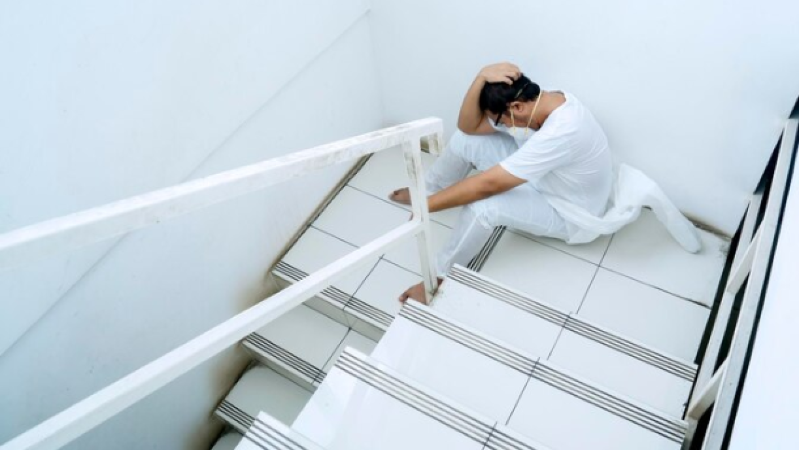
Accidents involving stairs often occur due to poorly maintained steps or faulty railings. These accidents can lead to serious injuries, such as sprained ankles or head injuries. Studies show that there are over 1 million annual staircase accidents with 1200 recorded deaths, which makes it the second biggest cause of accidental deaths in the USA.
f) Parking Lot Accidents

Parking lot accidents often result from poorly maintained lots with hazards like potholes, icy surfaces, or broken lighting. A recent study states that approximately 91,000 individuals are injured each year in parking lot accidents involving vehicles, with 35% of those injuries affecting pedestrians or nonoccupants. Additionally, parking lot incidents result in nearly 2,000 fatalities annually, with 39% of those deaths involving pedestrians or nonoccupants. The average settlement of these cases ranges from $10,000 to $50,000 for normal injuries and can reach 1 million plus for severe damages.
g) Increased Focus on Elderly Injuries

Older adults are more susceptible to injuries from slips, trips, and falls, making them a significant part of premises liability cases. Settlements in these cases can range from $30,000 to $100,000 or more, depending on the injuries sustained and the long-term care required.
i) Higher Settlements for Severe Injuries
Severe injuries, such as spinal cord injuries, traumatic brain injuries (TBI), or amputation, can result in significant settlements due to the long-term costs of medical care, rehabilitation, and lost wages. These cases often involve settlements exceeding $100,000 and can even reach the millions in the most severe cases.
What’s Next? How to File a Premises Liability Lawsuit?
If you've been injured on someone else's property and believe it was due to negligence, filing a premises liability lawsuit might be the next step. Here's a straightforward, step-by-step guide on how to proceed with your case:
1. Seek Medical Attention
First thing first, go to the nearby medical facility and get the necessary treatment. Your health is above any compensation amount, so attend to your injuries before anything. Remember to document all the procedures and collect bills for every penny you spend to heal your injuries.
2. Consult a Premises Liability Lawyer
Before you take any legal action, it’s essential to consult a personal injury premises liability lawyer. A lawyer specializing in these cases will help assess the strength of your claim, guide you through the legal process, and provide expert advice. They can determine who’s at fault, whether the property owner is liable, and how best to proceed with your case.
Don’t know which lawyer is best suited for your case? Check out this in-depth Lawyersmap to know the number of lawyers in your area in each field. You can also see their reviews and decide on the best professional!
3. Gather Evidence
Your lawyer will help you collect all necessary evidence to support your claim. Evidence is critical in proving negligence. Here’s what you should focus on:
- Photos/Videos: Document the unsafe condition that caused the injury, such as a wet floor, broken stairs, or inadequate lighting.
- Incident Report: If an accident report was filed (especially in a business setting), request a copy. This document is crucial for your case.
- Witness Statements: Talk to anyone who witnessed the incident or can attest to the unsafe conditions on the property.
- Medical Records: Obtain medical records showing the extent of your injuries and your treatment.
4. Send a Demand Letter
Before filing a formal lawsuit, your lawyer may recommend sending a demand letter to the responsible party (or their insurance company). This letter outlines your injuries, the property owner’s responsibility, and the compensation you are seeking. Insurance companies often attempt to settle the case at this stage to avoid going to court.
5. File the Lawsuit
If negotiations don’t lead to a fair settlement, your lawyer will file a formal premises liability lawsuit on your behalf. Here’s what happens next:
- Complaint: Your lawyer will file a legal document called a complaint in court, which outlines your claims and the damages you’re seeking.
- Summons: Once the complaint is filed, the defendant (property owner or manager) will be formally notified through a summons. The defendant then has a certain period to respond.
The lawsuit will be filed in the appropriate court, either in state or federal court, depending on the specifics of your case.
6. Discovery Process
The discovery phase is where both sides gather and exchange evidence. This process can involve:
- Interrogatories: Written questions that both parties must answer.
- Depositions: Interviews under oath where witnesses and experts may testify.
- Requests for Documents: Both parties may request relevant documents, such as maintenance records or accident reports.
Discovery is crucial because it allows both sides to fully understand the evidence before proceeding to trial or settlement negotiations.
7. Settlement Negotiations
Many premises liability lawsuits are settled out of court before trial. Your lawyer will likely negotiate with the defendant or their insurance company for a fair settlement. During this stage, you may receive an offer from the defendant, but it’s up to you (with guidance from your lawyer) to decide whether to accept or continue pursuing the case in court.
8. Trial
If settlement negotiations fail, your case will proceed to trial. Here’s what to expect:
- Pre-Trial Conference: Before the trial begins, there may be a pre-trial conference to narrow down the issues.
- Trial Proceedings: Your lawyer will present your case in front of a judge and possibly a jury. Both sides will have the opportunity to present evidence and question witnesses.
- Verdict: After the trial, the judge or jury will decide whether the defendant is liable and what compensation you should receive.
Trials can be lengthy and expensive, but your lawyer will work hard to represent your interests and secure a fair outcome.
9. Appeals
If either party disagrees with the trial verdict, they can appeal. The appeal process involves a higher court reviewing the decision to ensure no legal errors were made during the trial. If your case is appealed, the process can take additional months or even years.
10. Collect Your Compensation
If you win the lawsuit or reach a settlement, the defendant (or their insurance company) will pay the agreed-upon compensation. The amount you receive depends on various factors, including medical costs, lost wages, pain and suffering, and other damages related to your injury.
How Long Does it Take to Get Premises Liability Compensations in USA?
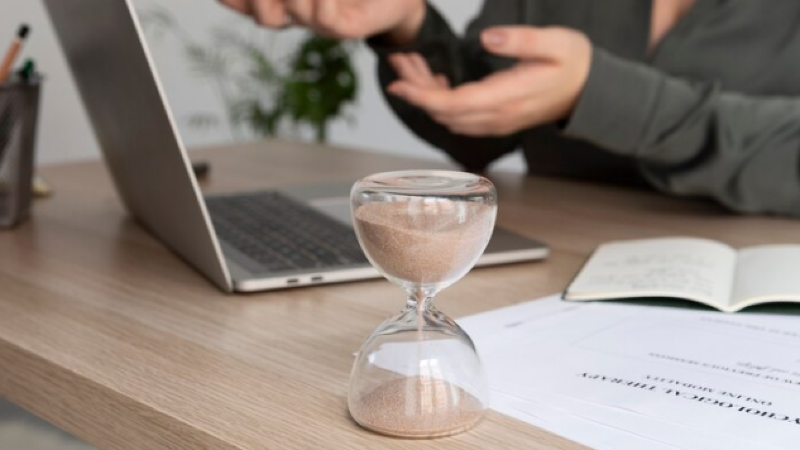
There isn’t any clear-cut answer to how long it will take to settle a premises liability case. However, based on the data from recent years, premises liability settlements in the USA can take anywhere from a few months to a few years. The total time taken and final payout depends on how severe the injury is and how complicated the case gets.
Simple cases with minor injuries might settle in 3–6 months, but more serious injuries or disputes can stretch the process to 1–3 years, especially if a lawsuit is involved. Insurance companies may delay things to avoid paying more, but having a good lawyer can help speed things up and ensure you get fair compensation.
Wrapping It Up
Premises liability settlements provide compensation for a variety of damages stemming from unsafe conditions on someone else's property. The payouts depend on several factors, such as the severity of the injury, the degree of negligence, and the insurance coverage available. Remember to gather all the documents and consult with a skilled personal injury lawyer to get the compensation you deserve. Sign up to Laawyersratings.fyi now!


